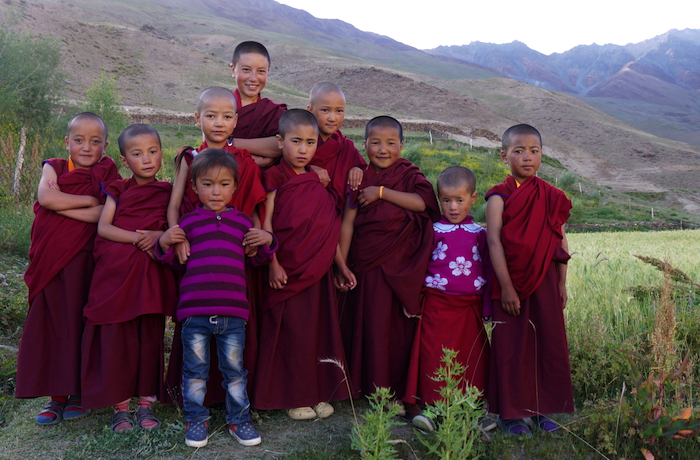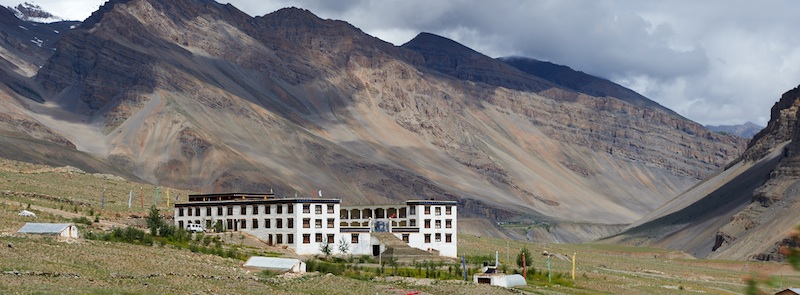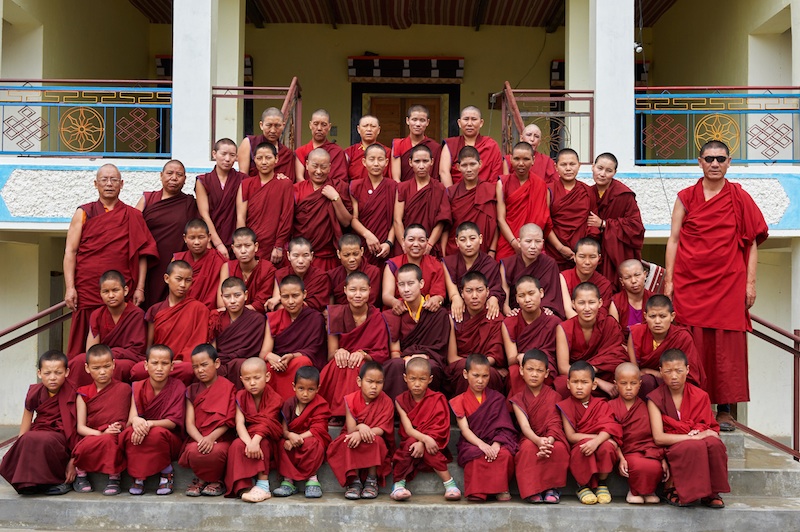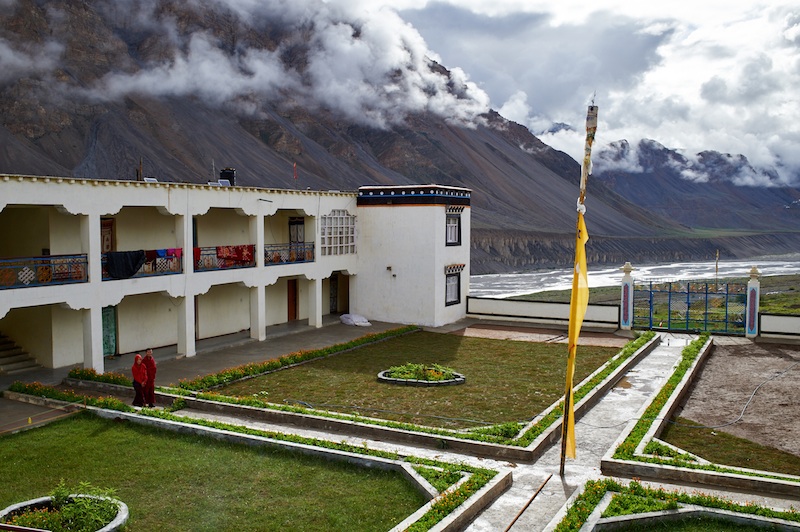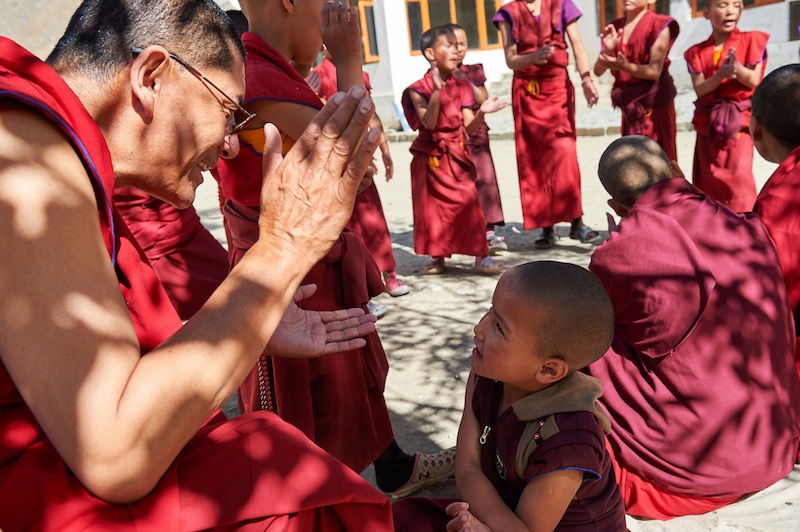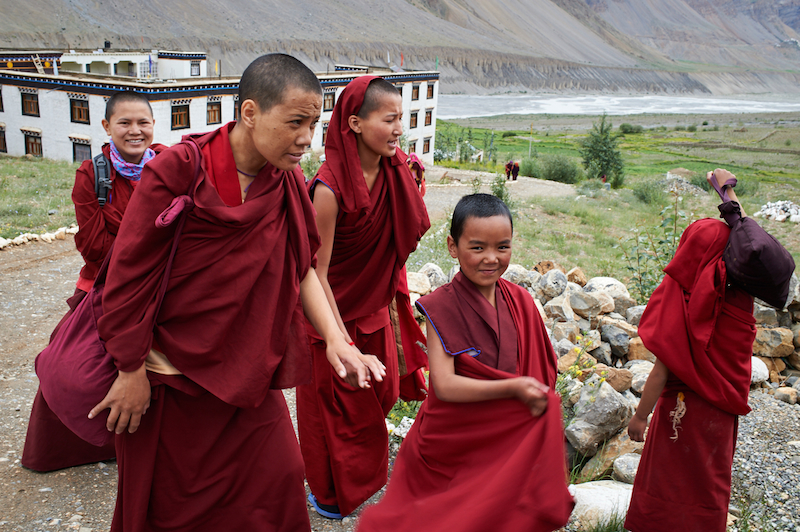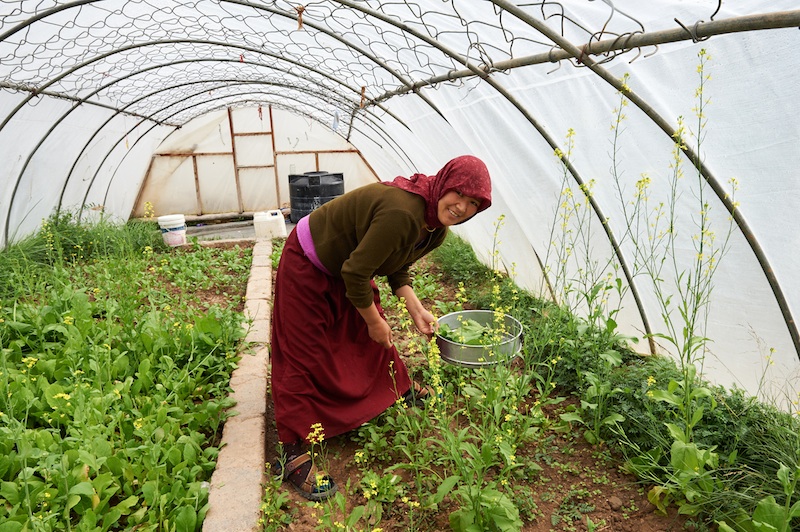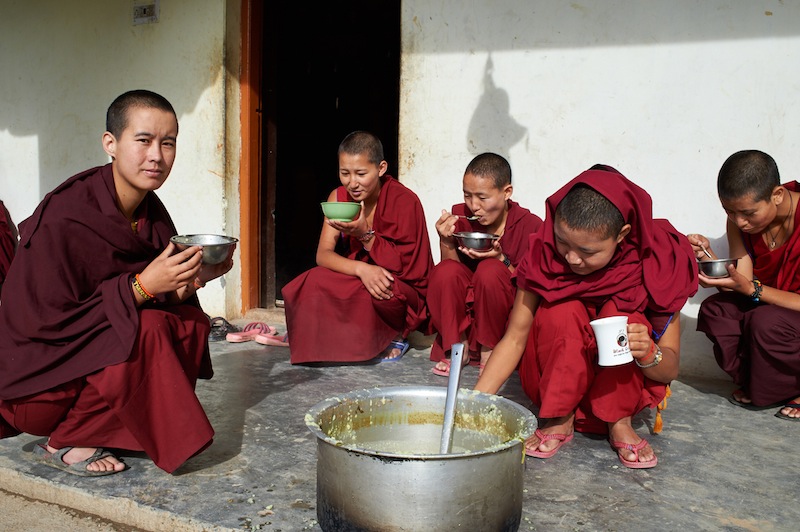December 7, 2015 marks a very special anniversary for the Tibetan Nuns Project and the nuns of Shugsep Nunnery. It is the fifth anniversary of the inauguration of Shugsep Nunnery and institute by His Holiness the Dalai Lama. It is also a celebration of the bravery, determination, and dedication of the nuns of Shugsep, many of whom were imprisoned and tortured in Tibet and who escaped to India seeking freedom and education.
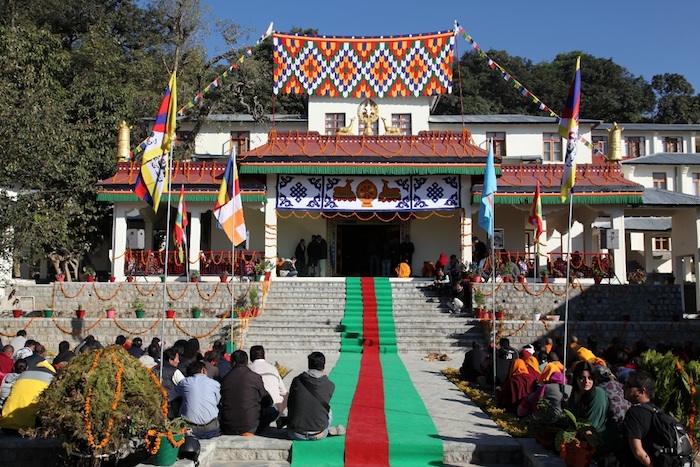
Inauguration of Shugsep Nunnery by His Holiness the Dalai Lama on December 7, 2010.
Shugsep Nunnery was re-established in northern India on the outskirts of Dharamsala and is now home to about 100 Tibetan nuns. Many of those nuns risked their lives fleeing their homeland to seek sanctuary in India. These nuns wish nothing more than to live, study, practice, and teach in accordance with their spiritual beliefs.
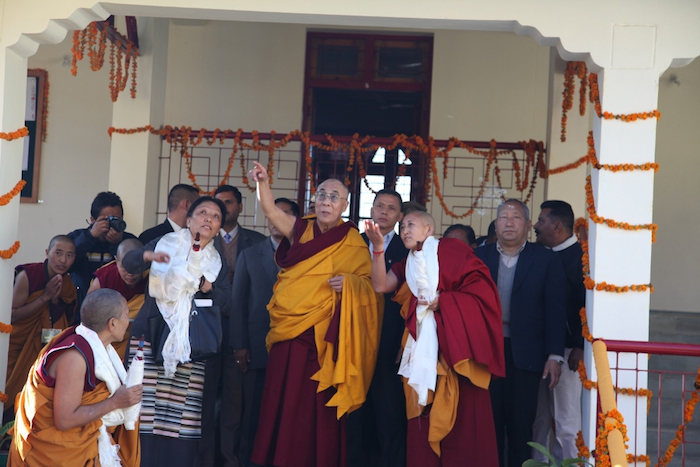
Tibetan Nuns Project Founder and Director, Rinchen Khando Choegyal (left) with His Holiness the Dalai Lama at the inauguration of Shugsep Nunnery on December 7, 2010.
The Story of Shugsep
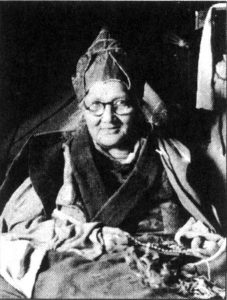
The great female master Shugsep Jetsun Rinpoche (1852–1953) was revered as one of the last century’s best known woman teachers. She was the Abbess of Shugsep Nunnery in Tibet and passed away in 1953
Shugsep Nunnery and Institute follows the Nyingma school of Buddhism and traces its rituals and practice to some of the most illustrious female practitioners in Tibetan history, including one of the most famous teachers of her time, Shugsep Jetsun (1852-1953).
The late Tibetan scholar, Lobsang Lhalungpa, visited Shugsep Nunnery in Tibet in the early 1940s and met Shugsep Jetsun. He wrote, “She was an extraordinary woman, small in stature, with a serene face radiating compassion and sensitivity… In her presence we felt an awesome power that permeated our whole stream of being… Her teachings and blessings have given me inner strength and inspiration ever since. To me she was the personification of the great woman teachers of Tibet.”
Oppression and Escape
During the Chinese Cultural Revolution, the Shugsep Nunnery in Tibet was completely destroyed and the nuns were ordered to leave. Although the nunnery was partially rebuilt in the 1980s by the nuns themselves, the nuns faced frequent harassment by Chinese authorities.
In the 1980s and 90s, prior to their life in exile in India, a large number of the nuns from Shugsep Nunnery participated in peaceful demonstrations in Lhasa. As a result, they were expelled from the nunnery and many were also imprisoned and tortured.
In the early 1990s, many nuns from Shugsep Nunnery fled Tibet seeking freedom, hope and a safe place to practice their religion. Their escape was perilous and difficult and they faced frostbite, starvation and arrest. They trekked through the snow-covered Himalayas for about 17 days to Nepal and then finally sought refuge in Dharamsala.
One nun describes what happened to her after she took part in a freedom demonstration in Lhasa:
“My friend threw a rock and the Chinese police arrested us both. We were imprisoned and tortured. We escaped and reached the Nepalese border, where we were arrested again. We were imprisoned this time for two years and nine months in Sikkim. We were placed in six different prisons, where we met many monks and nuns who had also tried to enter India. Finally we were sent back to the Tibetan border. Fearing for our lives, we walked for one month in the mountains. We were weak and sick. We were without food for days. By divine grace, we met some Western tourists trekking with a Nepalese porter. They gave us food and clothing and treated our frostbite. On the roadside, we found four Tibetans who had died from the cold: a boy, a monk, a lady, and a soldier. We carried their valuables to give as offerings at the temple in Dharamsala, as they would have wanted.”
After fleeing to India, the Shugsep nuns wished to remain together to maintain the unique Nyingma traditions of Shugsep. At the time, there were almost no facilities for the nuns in exile and they were forced to camp by the side of the road. The Tibetan Women’s Association stepped in to look after them and then the Tibetan Nuns Project, with wonderful support from donors, took responsibility for their longterm care and support.
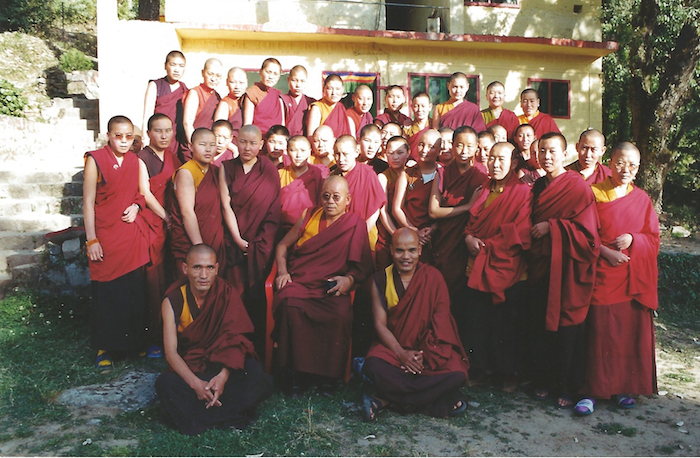
A group of Shugsep nuns in India in the early 1990s following their escape from Tibet.
The Shugsep nuns, together with other escapee nuns, were temporarily housed in two buildings in Gambir Ganj on the hillside below McLeod Ganj, Dharamsala. They had no beds and few blankets. The kitchen was set up outdoors, and they shared one cold-water spigot among them. Thanks to the sponsorship of Tibetan Nuns Project donors and the Tibetan Women’s Association, conditions steadily improved.
The Rebirth of Shugsep Nunnery in India
The Tibetan Nuns Project was able to purchase for the nuns the small piece of land with two small buildings where they had been living on the outskirts of Dharamsala. Initially there were plans to enlarge their facilities there, but that proved impossible, and so a new piece of land a half hour below Dharamsala was acquired and construction of a new nunnery began in 2003. We had been fundraising for the rebuilding project for a number of years. Once construction began, a major donor stepped up and promised to support the project through to its completion, and so we were able to move ahead steadily.
In May 2008, 58 Shugsep nuns moved into the completed first phase of their new nunnery which included a housing wing, 5 classrooms, a library, lecture hall, dining hall, and kitchen. Phase 2 of the creation of Shugsep Nunnery in India included the building of two further housing wings, a prayer hall, an office, a clinic, the solar shower facility, and a guesthouse. This was completed in 2010.
The majority of the nuns studying in Shugsep Nunnery in Dharamsala come from the original Shugsep. In Tibet they had little education. For decades, the nuns at Shugsep nunnery in Tibet were primarily engaged in learning scriptures and meditation and lived the aesthetic life of hermits in caves on the hillside. Shugsep Nunnery in India offers the nuns a 9-year academic program of Buddhist philosophy, debate, Tibetan language and English. Thanks to Tibetan Nuns Project supporters, the nuns now have a safe place to practice their religion, access to education, and the opportunity preserve their unique Nyingma traditions.
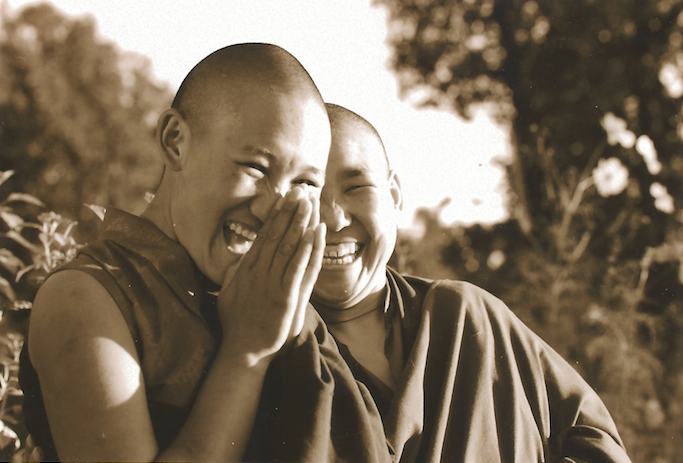
Two Shugsep nuns in the 1990s.
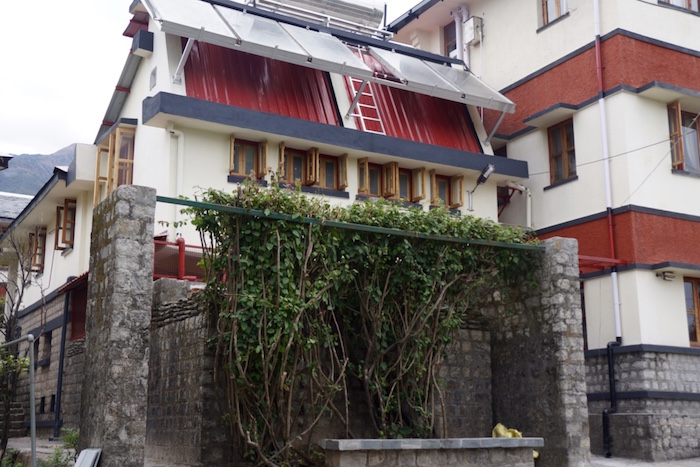
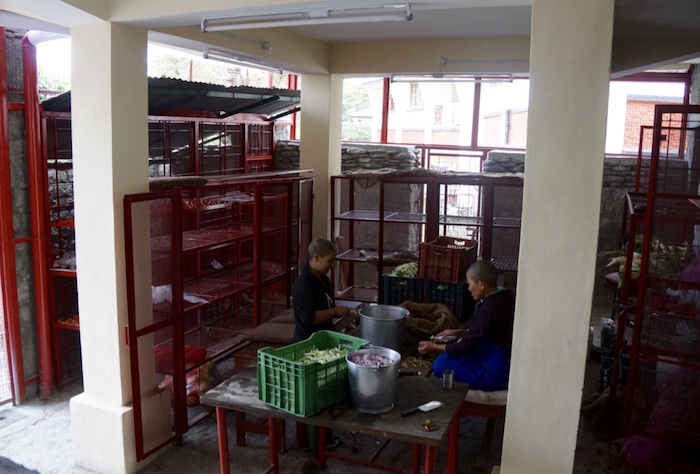
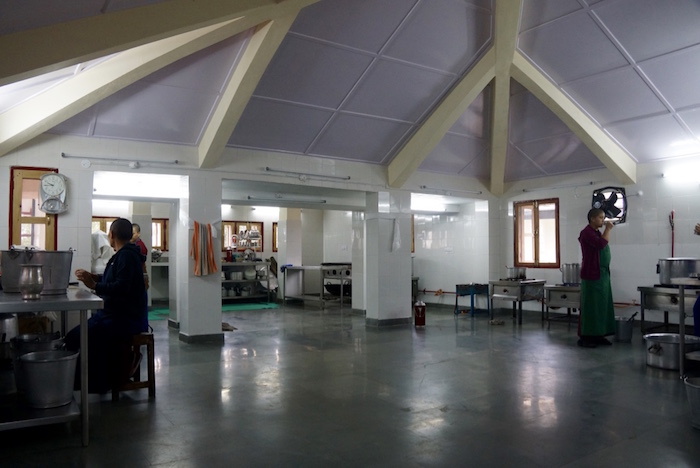

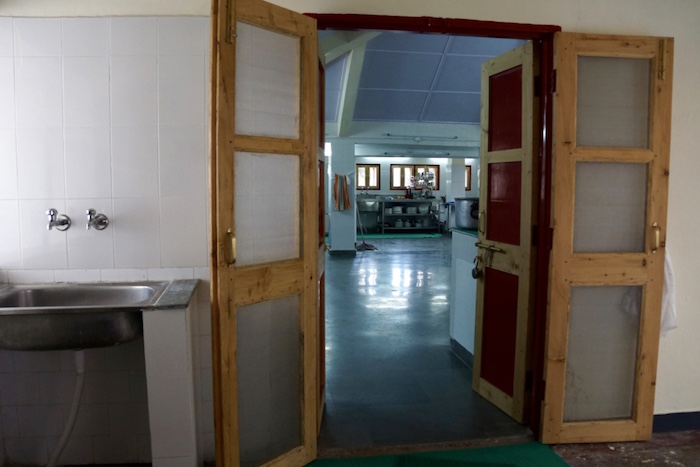
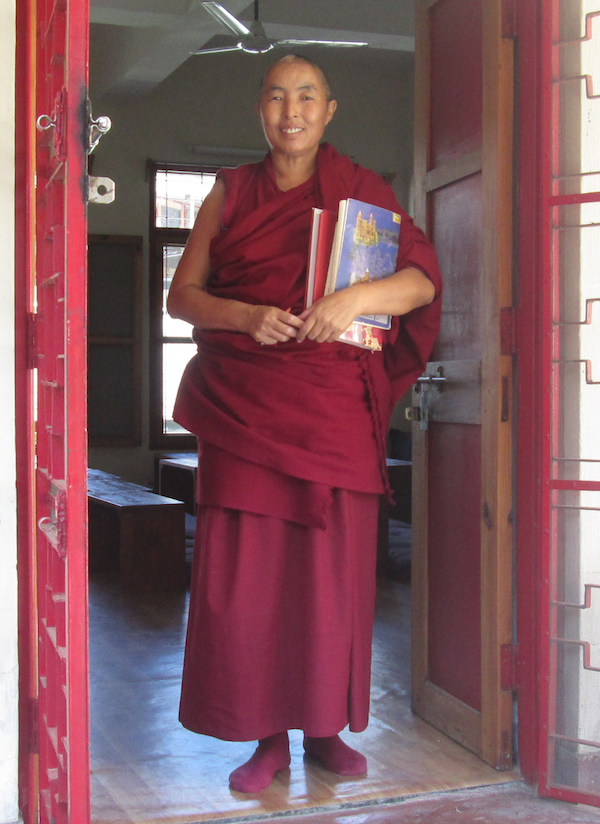
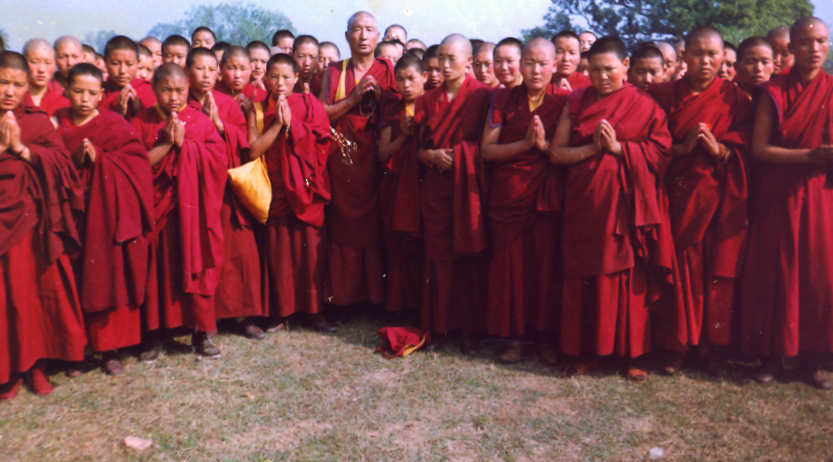
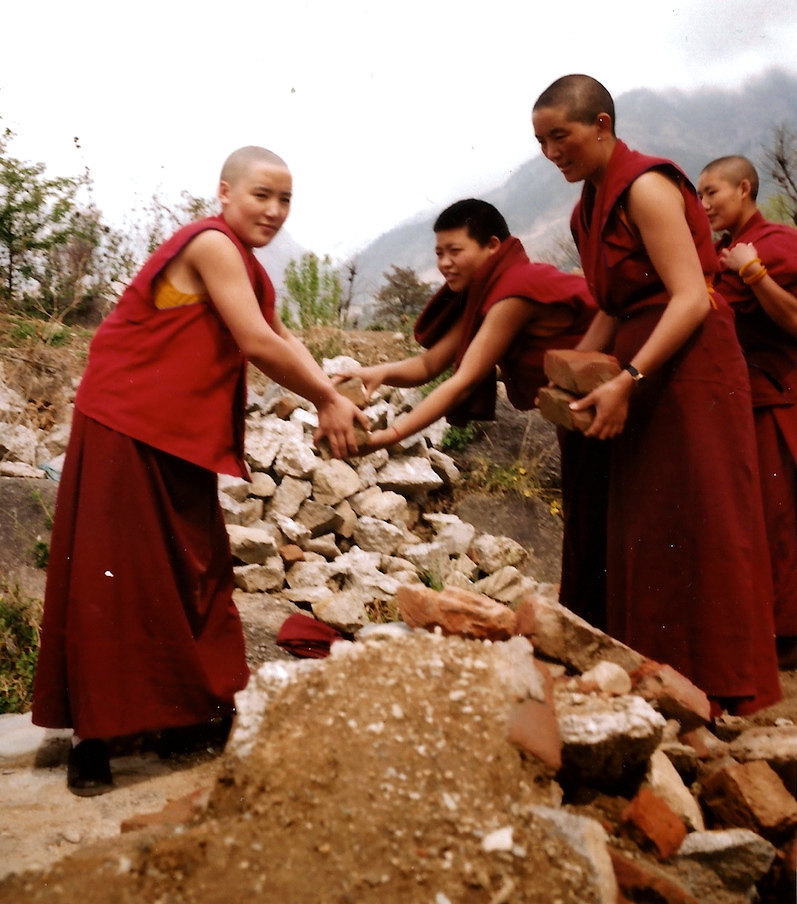
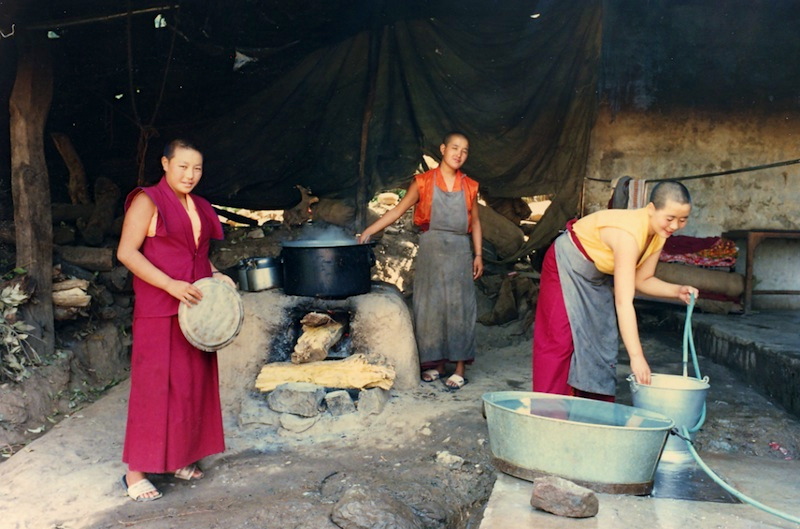
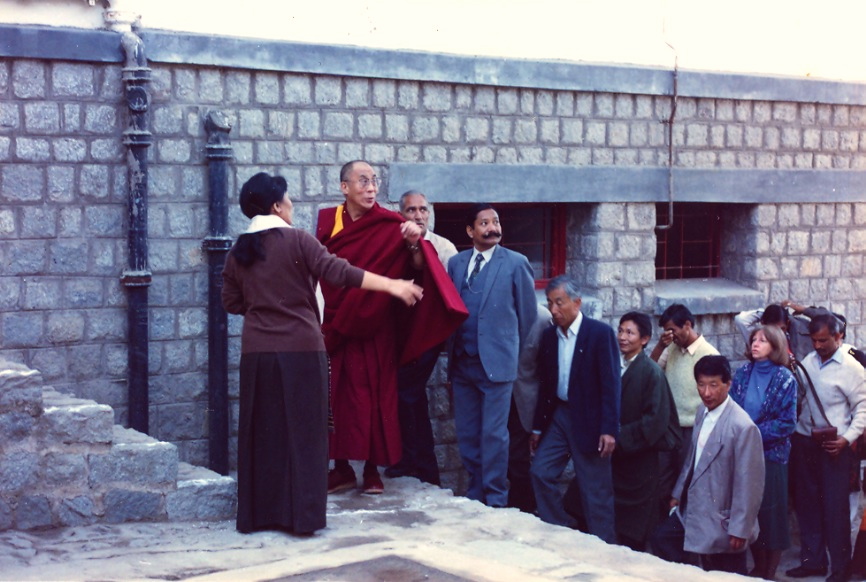

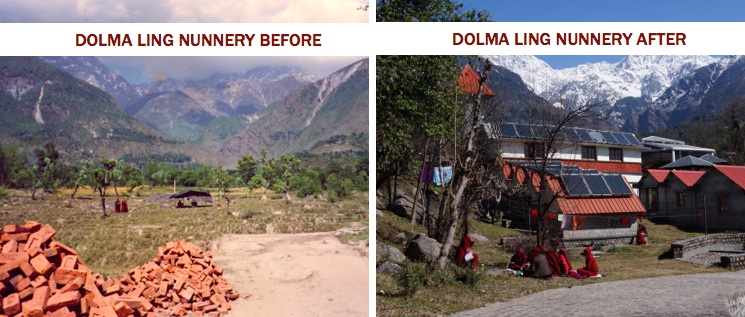
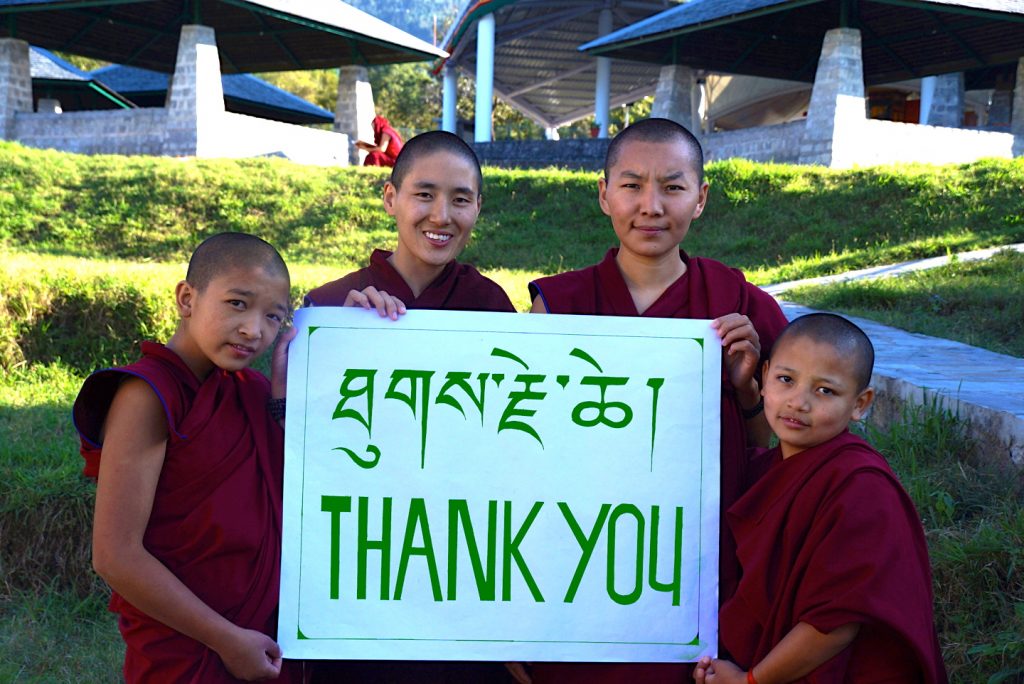





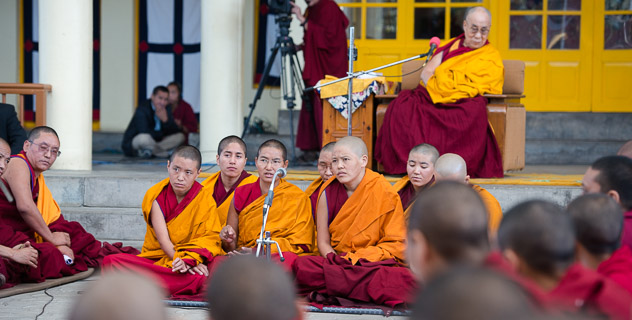
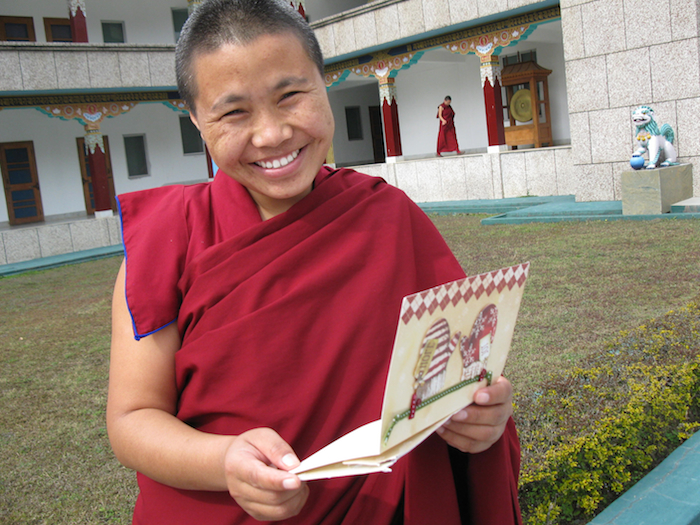
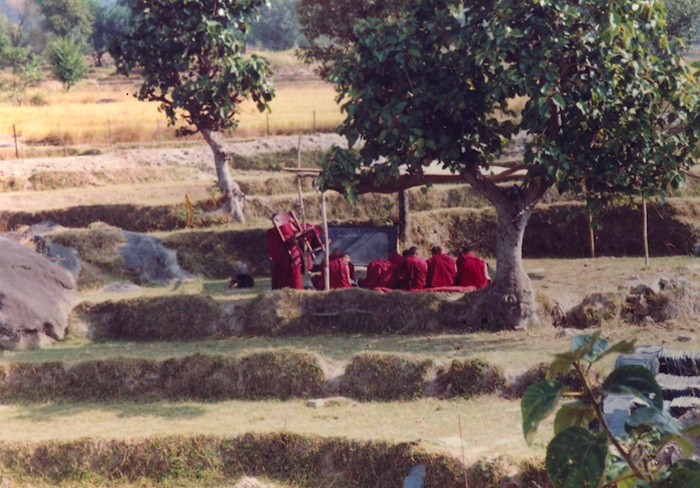
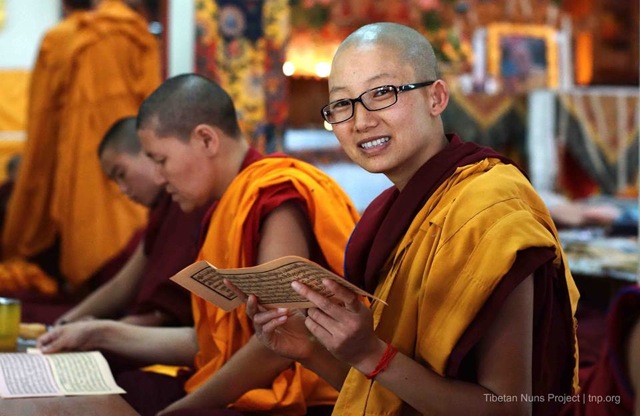
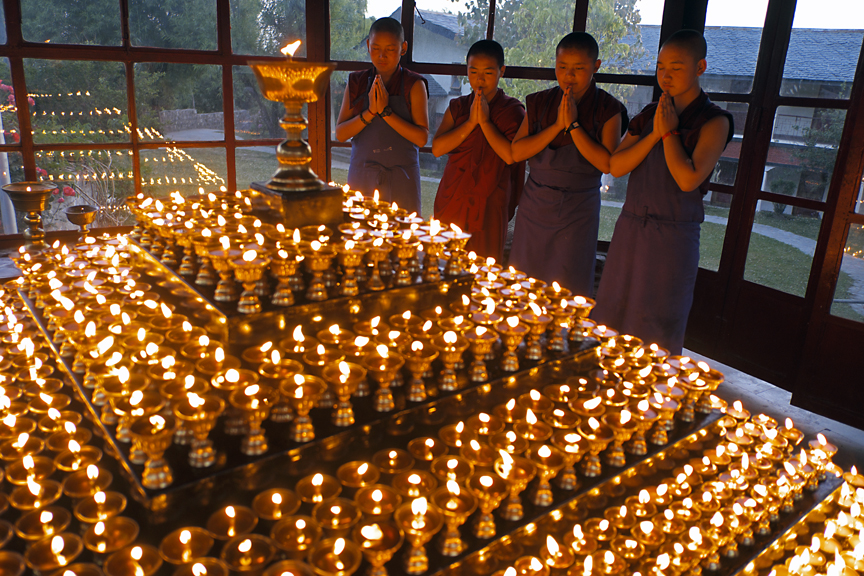
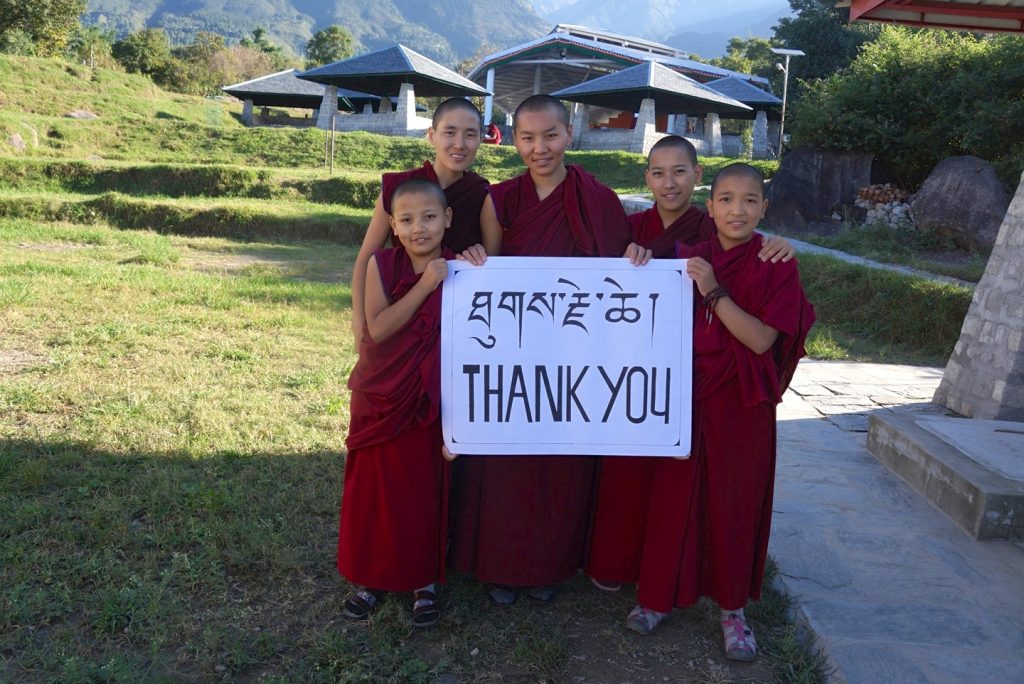

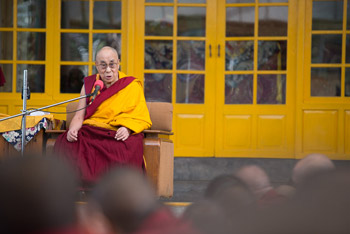
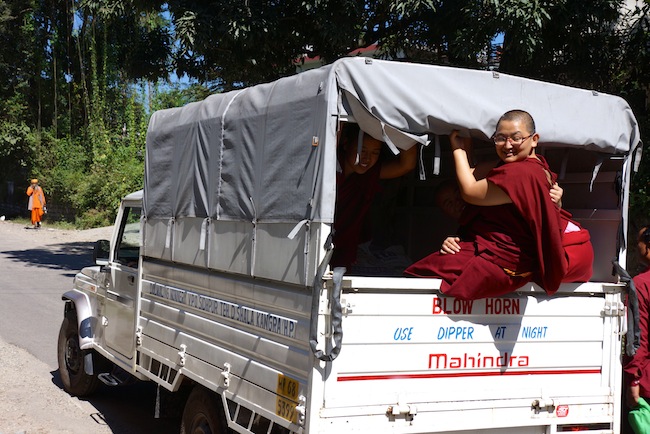
 In August 2015, we travelled for three days over rough, bumpy roads from Leh in Ladakh to Zanskar, a remote area in northern India. Located in this majestic, arid landscape is Dorjee Zong Nunnery, home to 19 nuns.
In August 2015, we travelled for three days over rough, bumpy roads from Leh in Ladakh to Zanskar, a remote area in northern India. Located in this majestic, arid landscape is Dorjee Zong Nunnery, home to 19 nuns.
